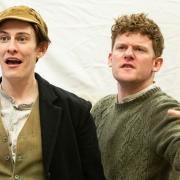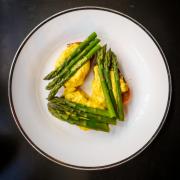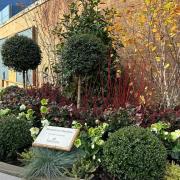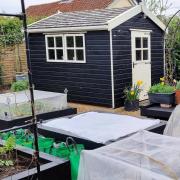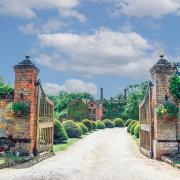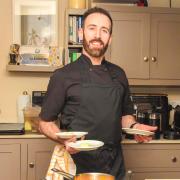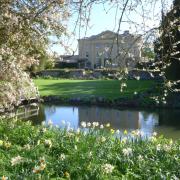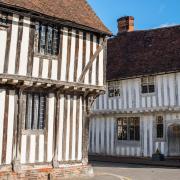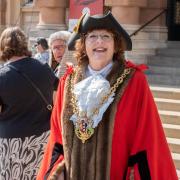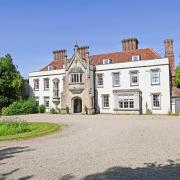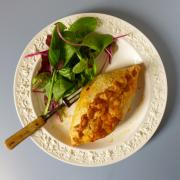'Let’s go down the pub for a pint.' It's a simple, cheery suggestion and far more profound than you might think. Pubs have performed many roles throughout the centuries but none more important than simply a place to meet, find good company and conversation.
Picture a scene from times past - an 'old boy' sitting on the settle, supping his favourite ale from his own mug; a group of friends leaning on the bar putting the world to rights with the landlord or landlady; a game of darts or pool on the go in the bar; a group of regulars huddled around a roaring fire in the cosy lounge.
The need for community is part of being human, and taverns and inns have played a role in our social evolution. Until relatively recently, the parish church and the pub were the beating hearts of towns and villages, the places where people from the parish would meet. But Suffolk has only a fraction of the functioning pubs it had 200 years ago. Along with village shops and post offices, pubs have been in steep decline for the past 40 years for several reasons.

In 1840, Ipswich had an astonishing 106 inns and taverns, and 62 beer houses. While inns served beer, taverns served mainly wine, and were said to attract a better standard of customer. Beer houses were literally people’s homes - front rooms or parlours opened to the thirsty public who would be served from a hatch, or bar, and permitted to take a seat. Social etiquette at the time banned women from drinking inside, but they were permitted to be served from a hatch if they brought their own jug.
In the directories for Victorian Ipswich there is a clear distinction between inns and beer houses. Inns or taverns are given names, but beer houses are listed under the name of the property owner. Just a handful of those listed in 1844 include Charles Barnard, of Bramford Road, Elizabeth Worth, of Duke Street, and John Bird, of Woodbridge Road. For some, running an inn or beer house was a side line to their existing business, trade or service. For example, in 1855 William Grimwade, owner of the Kersey Bell, is listed as a veterinary surgeon and victualler. In the same year George Gage, of the Chelsworth Peacock, is listed as a beer house owner and grocer, and in 1861 James Mott, of the Fressingfield Fox and Goose, was a butcher and innkeeper.
In Ipswich, near Barrack Corner, stood an inn specifically for the military. The Canteen served the Cavalry Barracks built in 1795. Three troops of horse were quartered there and the inn was purpose built to serve troopers who played in the marching bands.

Some inns and beer houses, mainly in towns, became hangouts for criminals and prostitutes. In the St Clements district of Ipswich, most cases appearing before the magistrates related to pubs and booze, mainly common assault, drunk and disorderly behaviour, obscene language, refusal to leave licensed premises and vandalism. They were classed as anti-social behaviour, not criminal offences, although occasionally after-hours drinking led to prosecution. According to newspaper reports at the time, street-fighting and domestic violence were rife and linked to drink, but were described as “unavoidable”.
Smaller rural pubs were no strangers to boozy trouble and patrons weren't entirely to blame. In Victorian times, the village of Naughton had two beer houses, one referred to as the ale house, the other The Wheelhouse, or 'Wheel'. In October 1874, wheelwright William Roberts, of the Naughton Wheelhouse, was charged with selling beer at the unthinkable hour of 8.30am on Sunday July 19. Ten years later, George Preston, of the beer house, Naughton, was found guilty of allowing drunkenness at “his house”. He was fined £2, 11 shillings and sixpence, which was paid, and the conviction recorded on his licence. However, this didn’t stop Preston taking over the Wheelhouse from Roberts four years later.


While inns did contribute to anti-social behaviour and crime, they were also the setting for various legal proceedings, including Petty Sessions, the forerunners of today’s magistrates’ courts. The annual Petty Sessions for the Hiring and Retaining of Servants were held in each Hundred (county divisions) of Suffolk every Michaelmas, a custom originating from old acts of parliament which stipulated that ploughmen, and other agricultural labourers should be hired to serve a full year. This eventually extended to all types of servants and was generally observed throughout the county.


Servants would stand formally in a row while the hiring took place, all bit a bit tongue in cheek as most often the servants ended up being re-hired by their current masters. As more ale was consumed, the proceedings became rowdy and, according to one account, “sweaty, noisy and smelly”. An article in the New Suffolk Garland, 1866, reported: “The lads brought in the lasses when the amusement began, and it is acknowledged that coarseness, if not something worse prevailed.” Some of the Suffolk inns where Petty Sessions were held included the Green Man at Tunstall, the White Horse at Stoke Ash, the Crown at Bildeston, the Boar at Walsham Le Willows, and the White Horse at Finborough.
Pubs were also the setting for inquests into local murder cases, such as the Cretingham murder in 1887, when the parish vicar, Reverend William Meymott Farley, was discovered with his throat cut. His curate, Reverend Arthur Gilbert-Cooper, was arrested and charged with the offence and the inquest was held at Cretingham Bell, at that time opposite the church. Rev Gilbert-Cooper was subsequently declared insane and sent to Broadmoor prison.


The Swan at Peasenhall was the setting for the inquest into the violent death, in 1902, of a 23-year- old pregnant woman, who was discovered by her father also with her throat cut. Rose Harsent was briefly thought to have taken her own life, but it soon transpired she was a murder victim. Married Methodist preacher William Gardiner was scandalously linked to Rose and although the inquest at the Swan was brief, macabrely it was utilised for the identification of Rose's body by her father. Gardiner was accused of murder and put on trial, but the jury was unable to agree on a verdict.
The Peasenhall Swan is now a private residence. The Cretingham Bell also closed as a pub, but the business moved to another location in the village in 1967. The old ale house at Naughton closed as a drinking establishment almost 100 years ago, and has remained a private home since. But the Wheelhouse at Naughton has not only managed to stay in business, unlike many others it has remained a beer house in the traditional sense. The most recent owner of the Wheelhouse, Nancy Gibbon, bought the pub about 20 years ago. First and foremost this lovely old pub is her home from where she serves a selection of traditional cask beers. As she explains, her regular customers are like extended family members and she adjusts her opening times to suit demand.
Three completely different situations and outcomes. But even those pubs which survived until the Covid-19 pandemic struck, like all businesses in the hospitality sector, whether a gastro or drinking pub, most have suffered financial loss and their owners, managers and staff have suffered varying degrees of stress. Perhaps the unnatural turmoil of not being able to meet up with friends at our 'local' will make us all appreciate that invitation to 'go down the pub' more than ever.




